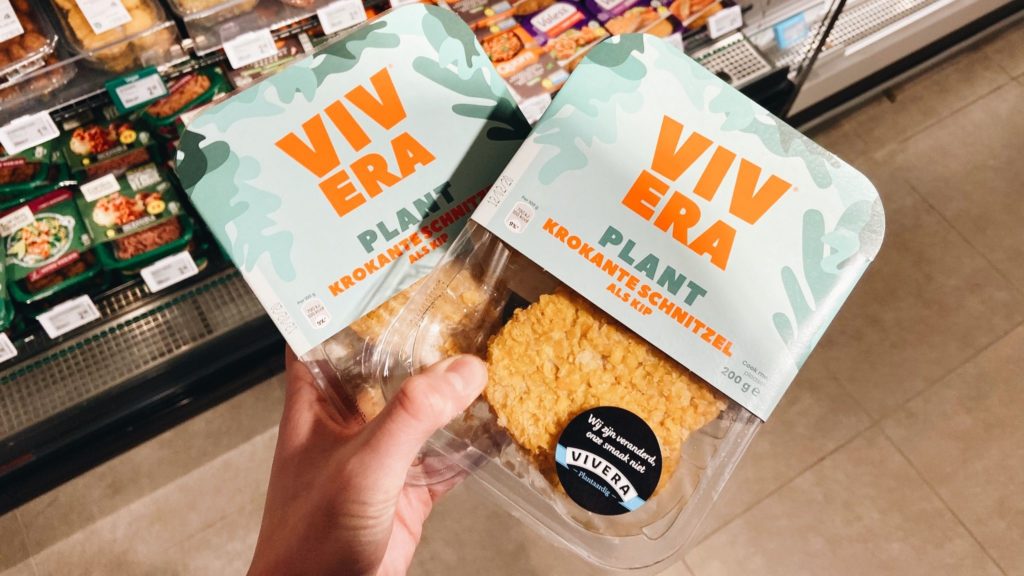A first-of-its-kind study just revealed that Europe’s vegan market grew by 49 percent in just two years, reaching a total of €3.6 billion in sales.
The Smart Protein Plant-based Food Sector Report compiles previously unseen Nielsen MarketTrack data on supermarkets in 11 different European countries from the last three years (2017 – 2020). According to ProVeg International, a plant-based NGO that co-produced the study, it is the largest and most accurate overview of European consumer habits to date.
Plant-based milk sales lead the sector in the majority of EU countries, and oat milk, in particular, shows the highest growth rate of all. Vegan meat sales are the second-highest; the German plant protein sector alone grew by 226 percent — reaching €181 million in sales.

Austria also reported a significant increase in vegan meat sales, with 82 percent over the preceding two annual periods. The country experienced 57 percent more plant-based sales overall, with additional consumer demand shown in discount stores.
In Denmark, the vegan meat category grew by 50 percent over the same period, and over 40 percent of this was also sold in discount stores.
Plant-based cheese purchases continued to grow across Europe, with an increase of 77 percent in Germany and 140 percent in the Netherlands. Overall, the Dutch dairy-free cheese category skyrocketed by a huge 400 percent.
In Spain, all categories experienced “double-digit growth,” but vegan milk led the national market in terms of value at €318 million.
The rapid growth of Europe’s vegan market
Europe’s vegan meat and dairy categories are expected to reach €7.5 billion by 2025, while another recent study revealed that 40 percent of European consumers have either significantly reduced their meat intake or cut out red meat entirely.
The majority of these participants cited environmental concerns as key motivators, though personal health and animal welfare are also common factors in the reduction of animal products.
Sixty percent of surveyed consumers said they were happy to swap meat for plant-based foods, and 33 percent said they were more likely to consume vegan burgers than “real” meat.
The new Plant-based Food Sector Report confirms these trends, and the growth of Europe’s vegan market reflects the increasing popularity of plant-based dishes worldwide.
“Finally, we see the tremendous growth of plant-based food in Europe over the last few years reflected in numbers,” said Dr Kai-Brit Bechtold, Senior Consumer Research Scientist at ProVeg International, in a statement sent to LIVEKINDLY.
“This report clearly reveals the huge increase in sales of plant-based food and offers a green light to the food industry in terms of pursuing more plant-based options,” she added.
Why eat vegan?
According to ProVeg International, over 50 percent of the world’s crops feed farmed animals. Using these resources directly for human consumption would feed an additional four billion people worldwide.
Study co-producer the Smart Protein project is a €10 million, EU-funded organization aiming to overhaul the food system by developing resource-efficient, cost-effective, and nutritious ingredients. It emphasizes alternative proteins — such as plant-based meat — and seeks to incorporate the side-streams of beer and pasta production to maximize resource efficiency.
“Global food production is the largest pressure caused by humans on Earth, threatening local ecosystems and the stability of the Earth system,” Dr. Emanuele Zannini, Smart Protein project leader, told LIVEKINDLY back in 2019. “Providing a growing global population with healthy diets from sustainable food systems is therefore an immediate challenge.”


